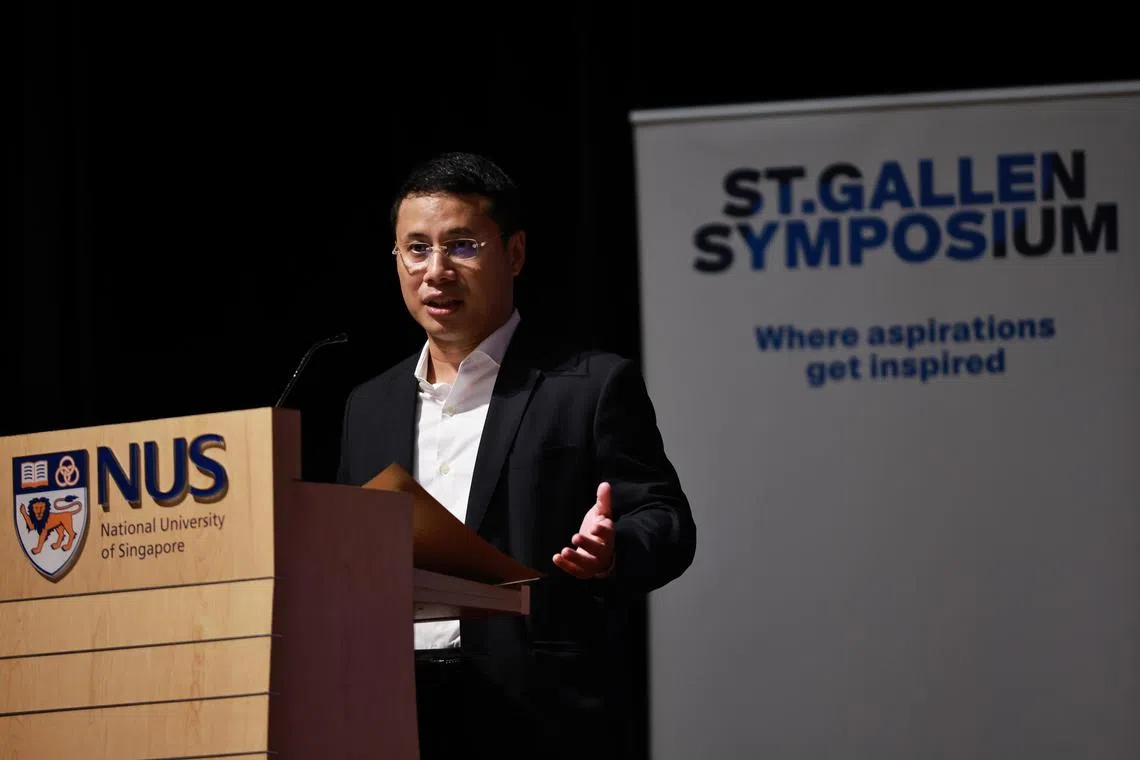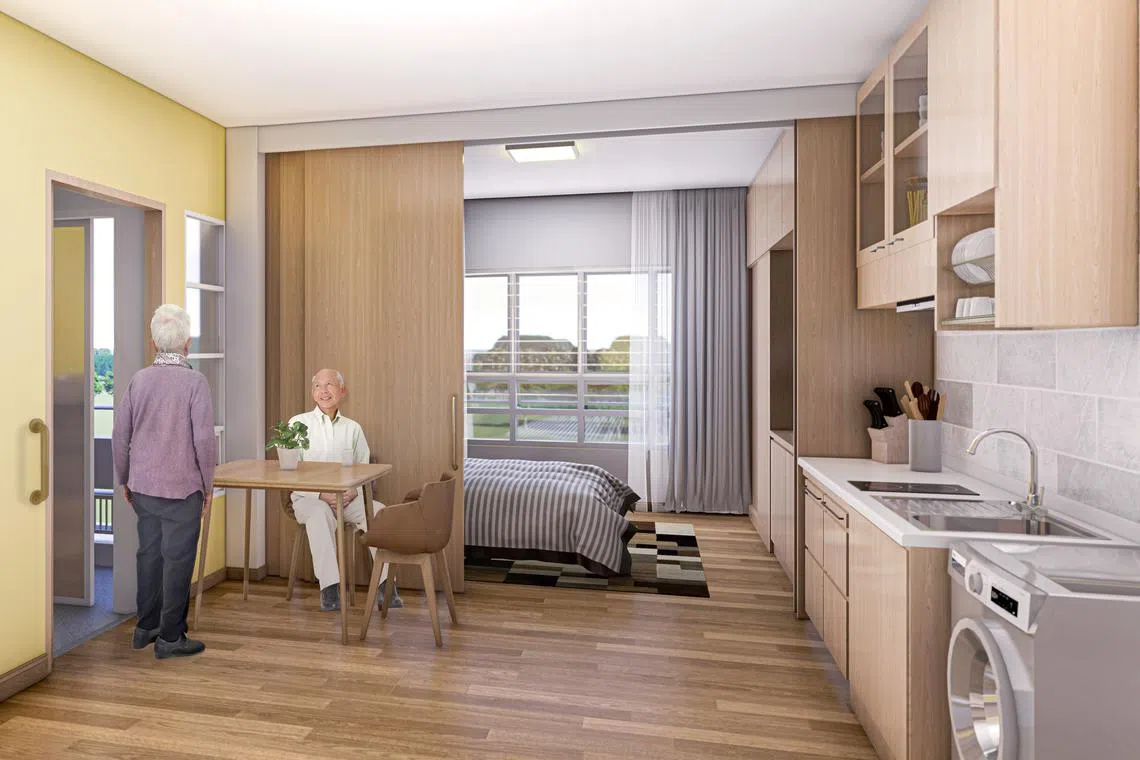‘Difficult choices’ must be made in long-term planning, says Desmond Lee at St Gallen Symposium
Sign up now: Get ST's newsletters delivered to your inbox

National Development Minister Desmond Lee said policymakers have to make difficult choices between the needs and wants of today.
ST PHOTO: JASON QUAH
SINGAPORE - Tackling Singapore’s buoyant property market during the Covid-19 pandemic required circumspection and care, amid a perfect storm of conditions which led to prices in both Housing Board and private resale markets going up significantly.
Responding to audience questions about the affordability of housing at the St Gallen Symposium Singapore Forum 2023 on Friday, National Development Minister Desmond Lee said the Government is watching the property market carefully and is “not afraid to take the appropriate measures”.
He noted that the pandemic, construction delays and a generation of citizens setting up homes contributed to the hot property market in the last two years.
“It is very clear, through a series of housing cooling measures, that we want to make sure there’s stability in the housing market (and that it) doesn’t run away from economic fundamentals,” he added.
The symposium, which brings together policymakers, business leaders and academia, was held at the National University of Singapore after two years of virtual and scaled-down events.
This year’s symposium centred on the theme “a new generational contract”, or how cities deal with current challenges while setting the path for a more resilient future.
In his speech, Mr Lee said policymakers have to make difficult choices between the needs and wants of today, and setting aside enough space and resources to meet the uncertain challenges of tomorrow.
Citing how the Marina Bay business and financial district had been planned since the 1970s, he said: “It took more than 30 years of painstaking planning, investment and preparation before developments in Marina Bay started taking shape in the new millennium.
“Some who envisioned Marina Bay knew that they might not be around to see the fruits of their labour, but that did not affect their determination to keep improving Singapore.”
The development of the Greater Southern Waterfront,
The protection of the state’s reserves was another critical principle that was set out. It enabled Singapore to build up a rainy-day fund. This paid off when the reserves were used to fund five Budgets to tide the country over the Covid-19 pandemic, he said.
“It is a principle that we must continue to uphold, especially as we head into a future fraught with challenges such as climate change and greater geopolitical uncertainty,” he added.
Climate change is a key challenge that has long-lasting impact on future generations, and Singapore is doing its part by setting a national target to achieve net-zero carbon emissions by 2050,
To tackle rising sea levels,
“These are long-term investments, and could cost $100 billion or more, over the next 50 to 100 years. And this, once again, highlights the importance for us to save up our reserves for rainy – and quite literally, stormy – days,” he added.
Providing and caring for senior citizens is another aspect of the intergenerational compact, Mr Lee noted. The Government has set aside funds to support particular generations of older Singaporeans to avoid burdening future generations, he added.
New models of public housing for seniors, such as community care apartments, which integrate housing with care services, are also being initiated, he said.

Community care apartments, which integrate housing with care services, are among new models of public housing for seniors.
PHOTO: HDB
During a panel discussion, an audience member asked how countries and industries balance short- and long-term goals.
In response, Dr Iris Zemzoum, global healthcare company Novartis’ president for Asia-Pacific, Middle East and Africa, said: “You just have to have a very clear vision of what you want to achieve, what are the priorities and what you need to do today, to still be able to sustain what you have planned for the future.”
HSBC Singapore chief executive Wong Kee Joo added that after short-term challenges are addressed, firms should also keep in mind how they may have future implications.


